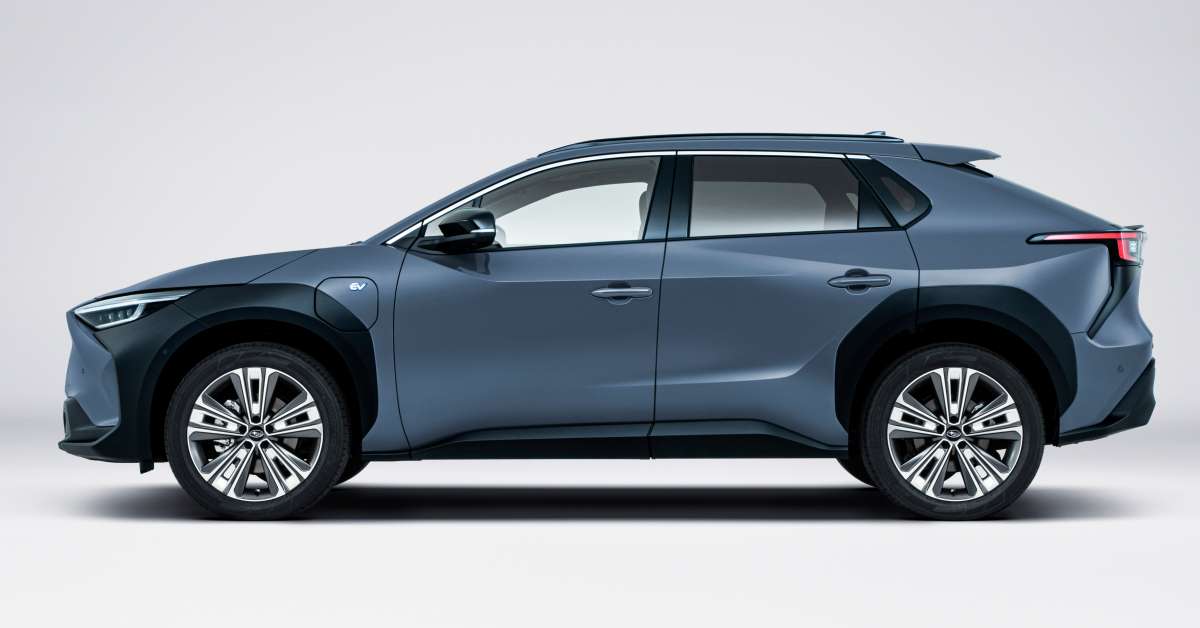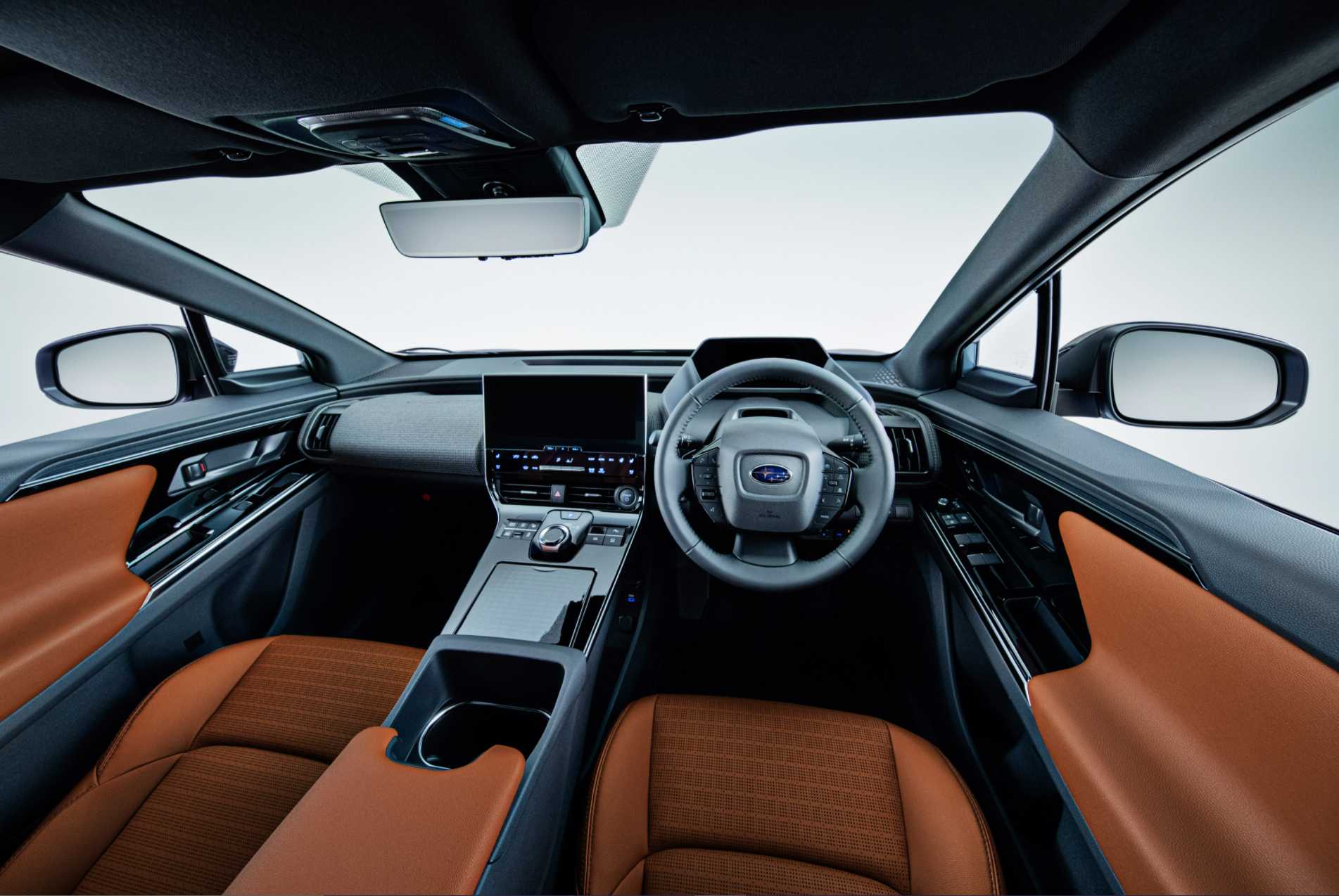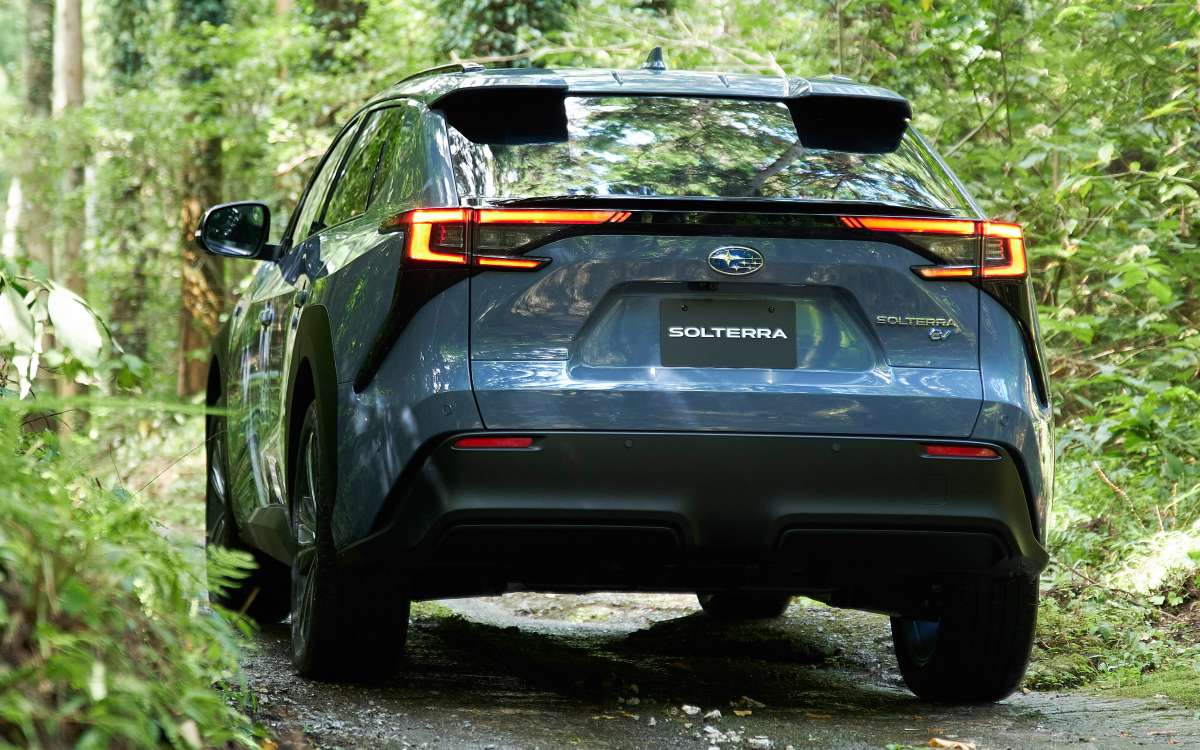Much like the two companies’ prior collaboration which produced the Subaru BRZ and the Toyota 86, the Solterra also has a twin – namely the Toyota BZ4X electric SUV, which was first unveiled in early June this year. Both vehicles are developed under Subaru’s e-Subaru Global Platform, therefore sharing the same chassis and a nearly identical design. What sets the Solterra apart from its Toyota-made doppelganger is the different design for its front headlights and more rugged-looking lower bumper with round fog lights. Inside Subaru’s first EV is a grey interior decorated with a hint of orange for its panels, seats, and center armrest. As with most traditional and electric modern day vehicles, the Solterra features a digital dashboard that sits high in the driver’s view, and a large touchscreen in the center, along with a variety of haptic buttons situated below it. The Subaru Solterra will be offered in front-wheel drive (FWD) and all-wheel drive (AWD) electric setups. Both of which feature a 355-volt lithium-ion battery that has an energy capacity of 71.4 kWh. The FWD variant comes with a single 150 kW motor, offering a range of approximately 530 km. The AWD model, on the other hand, is equipped with two 80 kW electric motors with a combined output of 160 kW, enabling for approximately 460 km of range. Naturally, the AWD is slightly heavier than the FWD – coming in at 2,020 kg (2,295 kg gross), whereas the latter weighs at around 1,930 kg (2,205 kg gross). Charging-wise, Subaru says both variants support up to 6.6 kW via AC and up to 150 kW through DC. There’s also a solar roof option for its Japanese release, the Solterra follows the country’s EV plug standard; a Type 1 connector for AC, and a CHAdeMO connector for DC. Both of which may change when the Solterra eventually makes its way outside of Japan to other markets. Speaking of which, the new Subaru Solterra crossover SUV is expected to be sold in regions including Japan, Europe, China, and the United States by mid 2022. Subaru has yet to reveal the pricing for both variants, and there’s no word whether its first EV will be shipped to other markets in the near future. (Source: Subaru [Official website])


